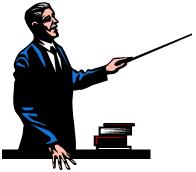Research
Law schools skew liberal, but liberals don't get all the prestige jobs
 Law schools hire more openly liberal professors than openly conservatives ones, but the plum jobs at the most prestigious schools don't appear to be going solely to the liberals.
Law schools hire more openly liberal professors than openly conservatives ones, but the plum jobs at the most prestigious schools don't appear to be going solely to the liberals.
That's the conclusion reached by researchers from the University of California, Berkeley School of Law who analyzed the ideology of recently hired law professors. Their study, "Ideological Diversity and Law School Hiring," is the first to focus specifically on the political leanings of law professors.
Previous research concluded that law professors skew white and male, and tend to have completed their legal studies at top law schools.
The research by Douglas Spencer, a Ph.D. candidate in the law school's Jurisprudence and Social Policy Program, and law student James Phillips turned up no statistical correlation between job applicants' politics and the prestige of the hiring institutions — a finding they described as "encouraging."
Still, "the extreme discrepancy between the proportion of new professors who can be clearly identified as liberal or conservative indicates either unequal hiring patterns or environments less conducive to openness and debate in the law school setting," they wrote.
"Further research is needed to test these hypotheses and, if necessary, identify a remedy that will increase the intellectual diversity of American law schools, with ripple effects on the development of law in the United States and the world."
The researchers noted the recent praise for Supreme Court nominee Elena Kagan for increasing the political diversity of the Harvard Law School faculty while she was dean. Of 32 tenure or tenure-track hires, three were openly conservative — which illustrates the large ideological imbalance in law schools, according to the study.
Spencer and Phillips compiled a sample of 149 entry-level, tenure-track hires made during 2005, 2007 and 2009. They assigned a measure of ideology for each hire based on political donations, Facebook profiles, work experience, publications and the political party of the president who appointed any federal judge for whom the professor clerked.
The researchers could not determine a clear ideological bent for 60% of the sample, yet the number of hires who were easily identified as liberal far outpaced those who were very clearly conservative. They determined that 52 of the hires were liberal, compared to 8 who were conservative — a ratio that "doesn't speak well of intellectual diversity in American law school hiring."
The findings suggest that conservative law professors may be more discreet about their political leaning early in their careers, the researchers said.
There was no statistical difference in the prestige of the schools hiring liberals versus conservatives, as determined by the U.S. News & World Report law school rankings.
Phillips and Spencer stipulated that their finding do not speak to the role ideology plays in who gets hired — they lacked access to data about candidates who were rejected for teaching positions.
Ideology remains a hot topic in legal education. Last year, a legal researcher at the University of Iowa College of Law sued the former dean, alleging that she was passed over for a tenured faculty position because of her conservative views. The suit alleged that 90% of the school's faculty were registered Democrats. U.S. District Judge Charles Wolle dismissed the case in April, but the plaintiff, Teresa Wagner, recently filed an appeal.
To read the research, click here.
(Published by Law.com – July 21, 2010)